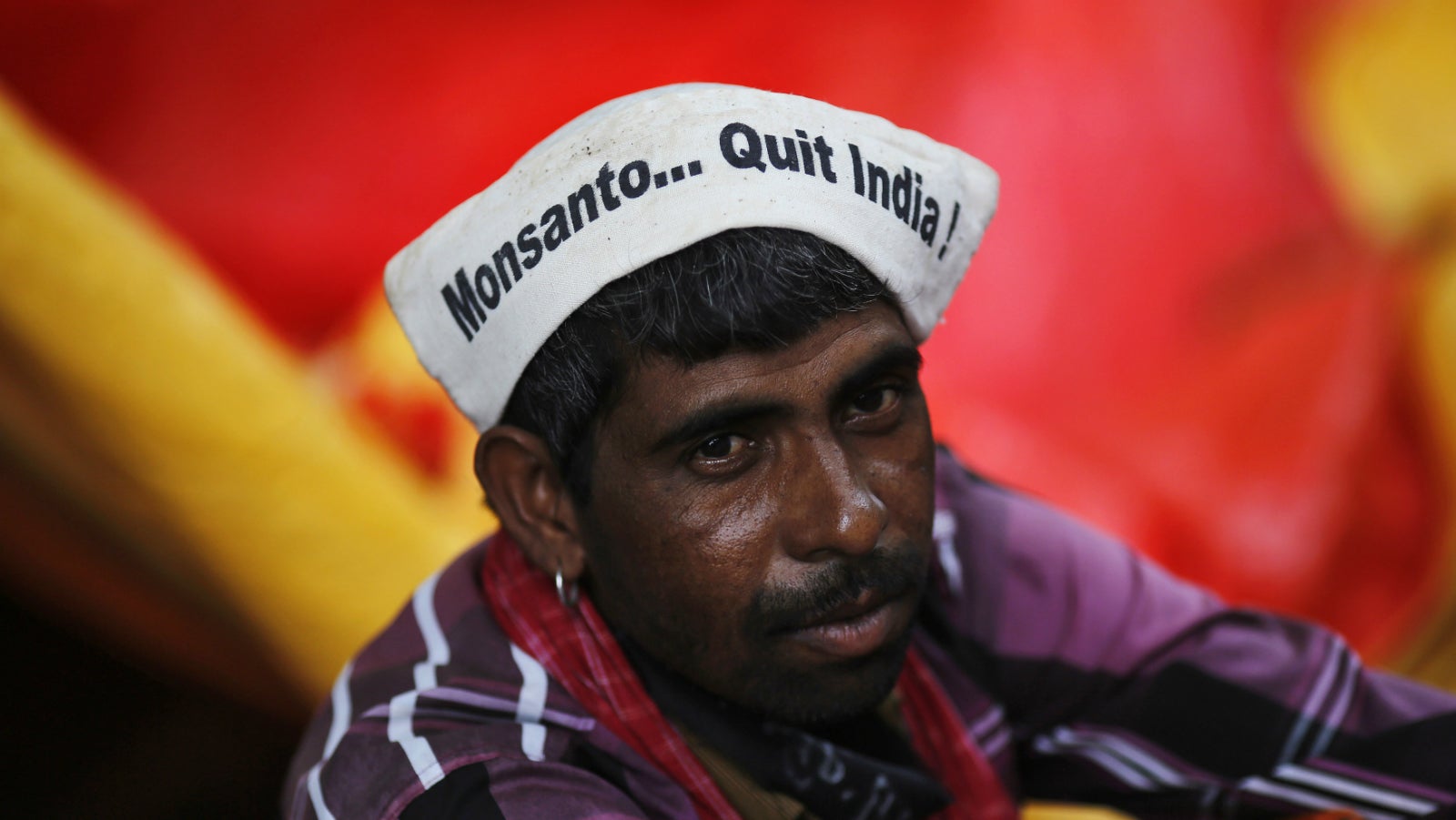Why is the world’s largest seed company miffed at the Indian government?
The world’s largest seed maker, Monsanto, is having a rough time in India.


The world’s largest seed maker, Monsanto, is having a rough time in India.
Last week, the Missouri-based company threatened to shut down its business in India after six decades due to “arbitrary” and “innovation-stifling” decisions by the Indian government. Monsanto’s lashing out was primarily at the Narendra Modi government’s move to regulate the selling price of genetically modified cotton crop seeds in Asia’s third largest economy.
This is the first time that the Indian government has fixed prices for Bt cotton seeds—or genetically modified cotton seed—after its introduction in 2002. Under the new rule, the maximum sale price of Bt cotton seeds has been set at Rs800 ($11.9) for 450 grams, starting April 2017. The seeds were earlier sold at prices ranging from Rs830 ($12.3) to Rs1,000 ($14.8).
But what has irked Monsanto the most is the government’s decision to effectively slash the royalty fee it receives by a staggering 74%. Royalty fee is typically paid by local seed makers to Monsanto. Under the new rule (pdf) notified by India’s agriculture ministry on March 8, Monsanto will only get Rs49 ($0.73) per 450 grams of the seed in comparison to the Rs183 it received earlier. Since 2006, Monsanto is estimated to have received over Rs4,400 crore ($654.5 million) as royalty payments, according to the National Seed Association of India.
The American multinational currently sells two types of Bt cotton seeds in India. The first, Bollgard I, doesn’t have any royalty fee attached to it. The second generation, or Bollgard II, attracts a royalty.
In a statement on March 6, two days before the government announced the decision, Monsanto, said it will find it difficult “to justify bringing new technologies into India” if the royalty was cut.
“If the committee recommends imposing a sharp, mandatory cut in the trait fees paid on Bt cotton seeds, MMBL (Mahyco Monsanto Biotech Limited) will have no choice but to re-evaluate every aspect of our position in India,” Shilpa Divekar Nirula, India CEO of Monsanto, said in the statement.
At present, Monsanto operates in India in a partnership with Mahyco, which has sub-licenced its technology to 28 domestic seed companies that manufacture over 300 different Bt cotton hybrid seeds in India.
High prices
India has close to eight million cotton farmers, and the Bt cotton technology supplied by Monsanto makes up for about 90% of the seed market in the country. And, although Monsanto can be credited for the phenomenal increase in cotton production in the country, it has had a bumpy ride.
The American firm has been under fire after activists blamed the high prices of its seeds for farmer suicides in the country. Over 300,000 Indian farmers have killed themselves since 1995, primarily due to heavy indebtedness.
The government has now said that the decision to control prices will help farmers.
Additionally, the decision to regulate prices may also have to do with the Modi government’s plan to break Monsanto’s monopoly. ”Based on the representations, this department also made a reference to the Competition Commission of India for investigation of dominance of MMBL and abuse of monopoly in Bt cotton technology so as to ensure competition in the market,” India’s agriculture minister Radha Mohan Singh said on March 9.
Monsanto is yet to respond to an emailed questionnaire from Quartz.